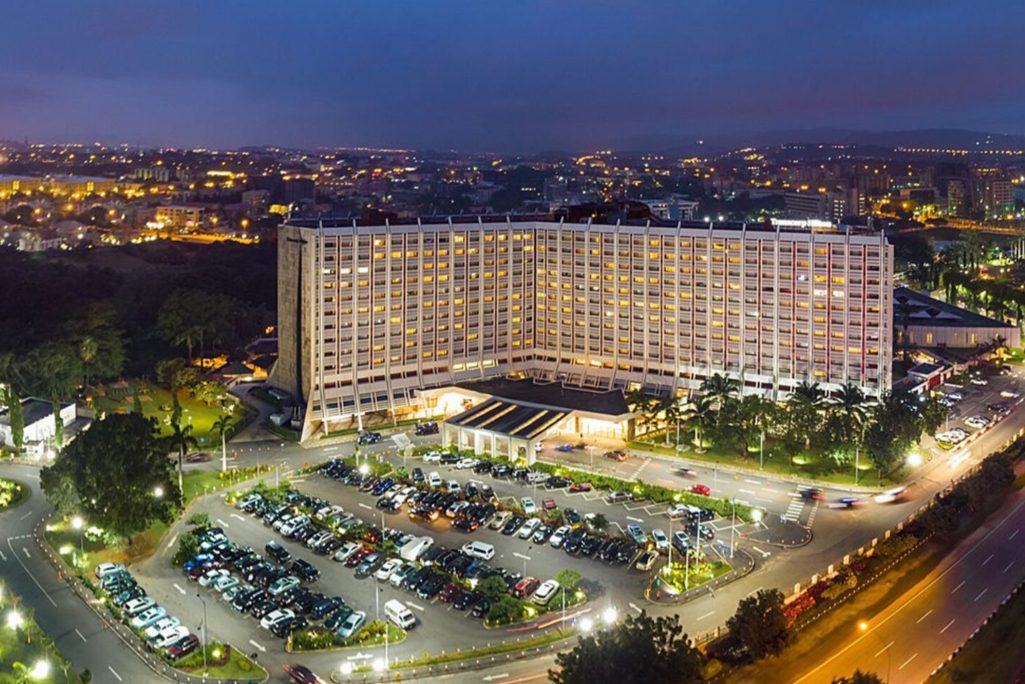Skift Take
It's still unknown how the new-ish CEO of Transcorp Hotels, Dupe Olusola, intends to adjust the shape of the business. Perhaps she'll draw a clearer division between its operating and property parts. The brand's Aura marketplace suggests she has an interest in asset-light experiments.
One of Nigeria’s biggest hotel players is taking on Airbnb with a homegrown listing marketplace for short-term apartment rentals and experiences. Transcorp Hotels, has launched this month a mobile booking app, Aura, that lets entrepreneurs list short-term rentals, tours, activities, and restaurant reservations for booking.
Transcorp Hotels runs Transcorp Hilton Abuja and Transcorp Hotels Calabar, some of the largest properties in the country. It is a three-decade-old subsidiary of the conglomerate Transnational Corporation of Nigeria that has interests in energy and agriculture.
“Aura is people-powered, allowing individuals and businesses to become hosts on the platform by listing homes, hotels, restaurants, tours, and other activities that can bring memorable lifestyle experiences,” said Dupe Olusola, CEO of Transcorp Hotels.
Transcorp Hotels is the latest travel supplier worldwide to try to leverage their customer base and brand recognition to sell services that aren’t their own. In the past year, AirAsia has sped up an effot to move from being an airline to becoming a lifestyle company. Singapore Airlines has begun reselling tours and activities it curates. French hotel giant Accor, whose brands include Sofitel and Novotel, has experimented with attempts at this since around 2017, and Marriott has been pushing local activities at many hotels and luxury vacation homes via a separate program.

Dupe Olusola, managing director and CEO of Transcorp Hotels. Source: Transcorp Hotels. Photo by: Kelechi Amadi-Obi
So far, the most enthusiasm for the app has been from Nigerians wanting to list their homes or properties they manage to travelers. Users can book from any country. If someone wants to book a short-term rental, they will need a valid means of identification to allow hosts to ascertain that the guests showing up at their homes are the same guests who booked online.
“Every apartment listed on our platform is verified, with necessary verification done on hosts using background check companies,” Olusola said.
The app, downloadable via Google Play or iOS, currently only has inventory from Nigeria. But the company aspires to expand it elsewhere in Africa.
For rooms, Aura today has an inventory equivalent of about 2,000 rooms. Among its curated experiences and tours listings, offerings include short experiences such as a three-hour “paint and sip” workshop and a wellness spa. Photographers are using the app to advertise their services.
The hotel brand has limited the marketing of Aura so far to some public events that received local press coverage, some social media promotion, and the use of digital screens around the company’s hotels.

An ad for Aura. Source: Transcorp Hotels.
Interest in short-term rentals is itself a change highlighting the growing middle class in several African countries. Until a decade ago, business travelers preferred hotels because of perceived greater security. That made properties like the ones owned by Transcorp broadly profitable because room rates in cities such as Lagos have been among the highest in the world for years (before the pandemic). But people are becoming accustomed to staying in people’s homes and professionally run properties. A search on Airbnb for stays in Lagos this October returned today more than 300 results.
“The Covid pandemic encouraged us to accelerate our asset-light strategy,” said Olusola, who coincidentally became CEO right as the pandemic struck in a job change from being a top executive at United Bank for Africa.
“Until the pandemic, our Abuja hotel was known as one of the best business hotels in Africa, and we did not place much focus on the leisure business segment,” Olusola said. “We’ve had to rely on the leisure market segment for the growth of our hotel business.”
However, the subsidiary still sees business travel as a key growth area post-pandemic and is still pursuing long-term growth in that segment.

Illustration of the planned Transcorp Hilton Lagos. Source Transcorp Hotels.
Transcorp Hotels has two long-promised hotels in the works, one in Lagos and the other in Port Harcourt, at a total cost of about $240 million. The Abuja property is also getting a convention center.
What is clear is that the subsidiary sees Aura as part of its new effort to reach leisure travelers and that it hopes to sustain the appeal to leisure travelers post-pandemic.
As for Aura, the company positions the app as being beneficial for African entrepreneuralism.
“We’re democratizing access to luxurious hospitality and creating more hospitality entrepreneurs in the process, as anyone with a home or unique skills can become a host on Aura,” Olusola said. “We’re also unlocking the stored value in houses and leveraging local across industries.”
The Daily Newsletter
Our daily coverage of the global travel industry. Written by editors and analysts from across Skift’s brands.
Have a confidential tip for Skift? Get in touch
Tags: ecommerce, hilton, hotels, nigeria
Photo credit: Transcorp Hilton Abuja. Nigeria's major hotel player, Transcorp Hotels, has launched a digital app, Aura, for listing short-term rentals and restaurant reservations. Transcorp Hotels
